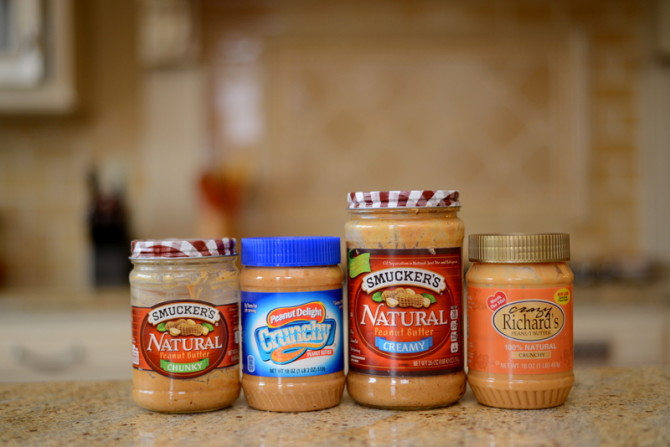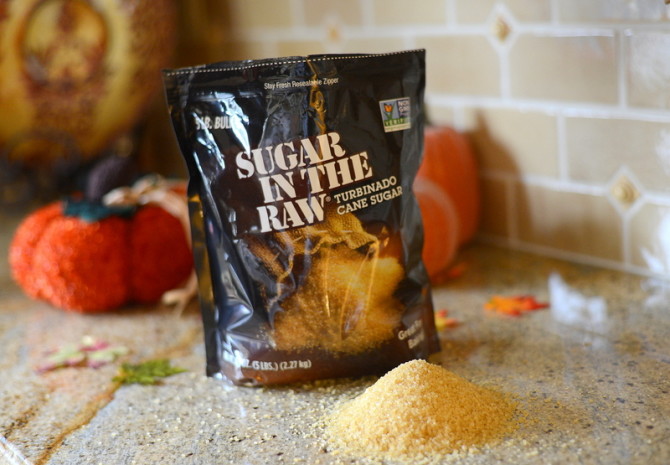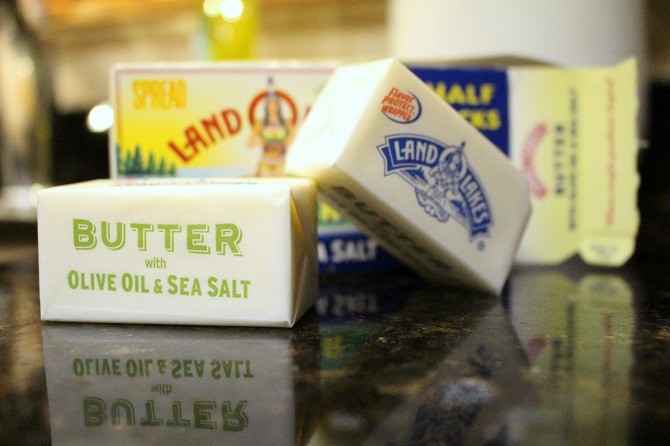Summer is long gone, which means ‘tis the season for food galore. Cakes, cookies, casseroles — you name it, I’ll eat it. In attempts to stave off those winter pounds you might be looking for ways to cut the calories, but you should think twice before trading in butter for margarine.
At first glance, any common consumer might look at calorie counts and think, “Yes, please.” But how do these products drop the calorie count? Most of the time, the answer is fillers — if you see zero calorie butter, it’s probably not actually butter, and it’s probably not something you want to put in your body.
The truth is, our bodies need calories in order to function. The problem is when we take in too many calories, most of which are empty calories. Oftentimes, these empty calories come from processed foods marketed as “lower calorie” or “reduced fat.”
Healthy fats, the ones that are often removed from processed foods, are actually good for us — they are important in hormonal regulation and in keeping our brains functioning. The real secret to eating healthy is eating smart.
Here’s the low down on what some common low cal and low fat foods really contain, and some human-friendly alternatives:
Peanut Butter

Photo by Sasha Kurumety
Metal shavings scandals aside, reduced fat peanut butter is not all its cracked up to be. Companies add fillers, thickeners, sweeteners, hydrogenated oils and a variety of other chemicals in order to make that reduced fat peanut butter palatable. Not only are the chemicals bad for you, but the monounsaturated fats found in peanuts and other nuts are actually good for you.
With reduced-fat peanut butter, you’re essentially trading in the good fats that are necessary for a healthy diet for extra sugar and chemicals. Next time you’re picking up a jar to make a PB&J or peanut butter cookies, check the ingredients and pick a natural peanut butter without additives.
#SpoonTip: Instead of reduced fat peanut butter, try all-natural peanut butter or almond butter.
Milk

Photo by Alex Tom
Myth: “If I put skim milk in my lattes, I can drink 12 cups a day.” Truth: Nope.
Don’t trade in for the skinny cow just yet. According to Time magazine, when it comes to milk, fat isn’t the criminal. Milk contains vitamins D, E, and A, all of which are fat soluble. Without the fats, those key nutrients aren’t digested.
Full fat and reduced fat milk contain more calories, sure, but their calories actually deliver nutrition to your body and keep you full for longer so you don’t overeat. Moral of the story: It’s better to keep the good fats rather than swapping them for empty calories.
#SpoonTip: Instead of skim milk, swap in reduced fat, soy, or almond milk.
Sweeteners

Photo by Sasha Kurumety
Artificial sweeteners — if they’re not sugar, what exactly are they? There are multiple artificial sweeteners, and some are worse than others. Aspartame, when heated, converts into formaldehyde, as in the stuff used to preserve cadavers. Ew.
Some research says that artificial sweeteners can be carcinogenic, and this Harvard Med Publication says using these products can mess with your body’s ability to regulate sugar in your blood, both of which aren’t so good. Trying to cut calories by substituting sugar can be costly, and probably isn’t worth it.
#SpoonTip: Instead of artificial sweeteners, use cane sugar or other natural sugars.
Butter

Photo by Kristin Arbutina
Grocery stores are filled with butter substitutes that claim fewer calories and less fat. It’s tempting to trade in the butter for a tub of vegetable oil spread, but stop and think about it for a second. Vegetable oil is naturally liquid. How did it become a solid? Not magic, but hydrogenation.
Processing turns the good fats in vegetable oils into trans fats, which every doctor on the planet categorically avoids. According to the Mayo Clinic, not all margarines are unhealthy, but as a rule of thumb, the more solid the margarine, the more trans fats it contains. It’s best to stick to vegetable oils or even butter, neither of which have trans fats.
So before you get cooking this holiday season, make sure to take a close look at the ingredients on your list. Skip the processed foods and indulge in moderation instead. Your waistline will thank you.
#SpoonTip: Instead of margarine, try natural butter or vegetable oils.


